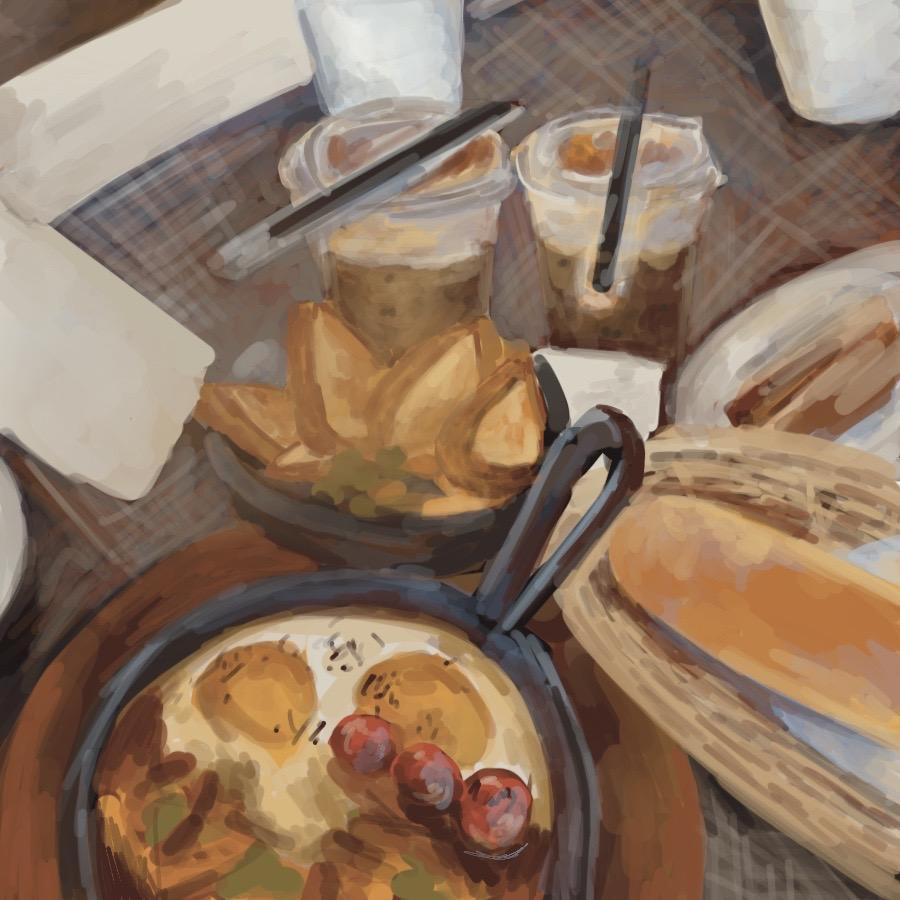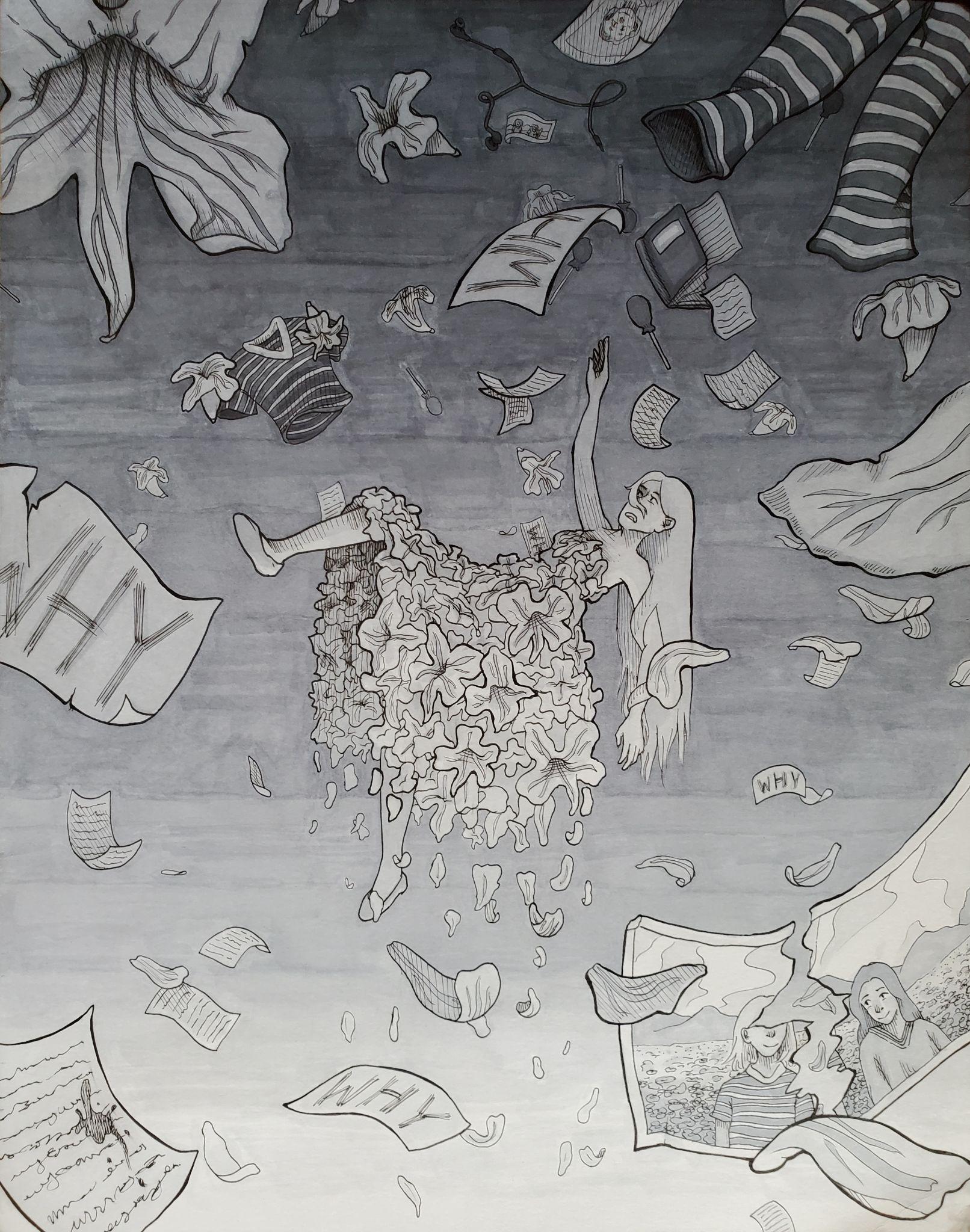LUCAS
by anonymous

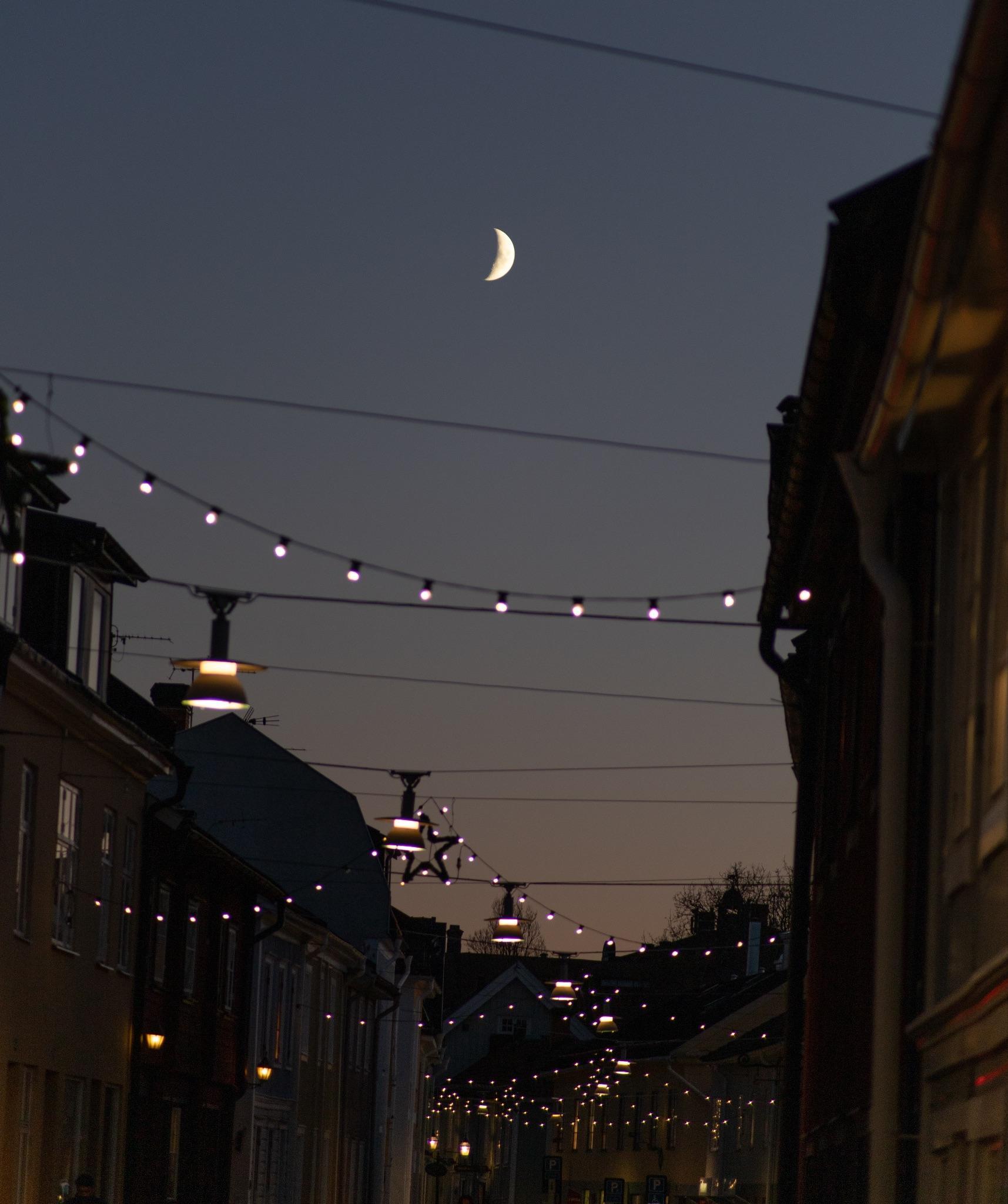




“The name lingers on his lips, hardwired into his mind and his tongue after years of repetition.”
Irvington High School’s Creative Writing Club is a student-run, interest-based club dedicated to providing a welcoming environment for writers of all kinds to convene and share their ideas outside of an academic setting. Members get a taste of publication through submitting to The Penchant, our online literary magazine. Meanwhile, monthly prompts, in-club competitions, and major writing contests are provided to allow members to explore the implications of writing, improve on their own techniques, and receive feedback from their fellow peers. Overall, our collective mission is to enable the students of Irvington to write what they wish and have their voices heard.
All images used are either submitted to us or public domain, CC0 photos.All rights remain reserved to their original owners, for those that have specified such guidelines.
Photo Credits:
Cover Photo by Arturo Castaneyra on Unsplash
2| Photo by Khoa Võ on Pexels
3| Photo by Pawel Czerwinski on Unsplash
4| Photo by Pawel Czerwinski on Unsplash
5| Photo by Robert Zunikoff on Unsplash
8| Photo by Ian Keefe on Unsplash
9| Photo by Damir Mijailovic on Unsplash
10| Photo by Hans on Unsplash
11| Photo by Tina Dawson on Unsplash (background), Reza Hasannia on Unsplash (top)
12| Icon from Free Icons PNG
14| Photo by Matilda Vistbacka on Unsplash
To learn more about us, visit our social media:
Facebook: @penchantlitmag
Instagram: @the_penchant
Issuu: @penchantlitmag
To see our submission guidelines, please visit https://tinyurl.com/penchantsubmit, or follow us on Facebook @penchantlitmag.
Irvington | Creative Writing Club
EDITOR-IN-CHIEF Helen Yuan
CONTENT EDITORS
Daniel Wang Ingrid Lu Sophie Mo
LAYOUT EDITORS Sophie Leung Mandy Liu
CONTENT
Akshatvir Singh Jorge Palacios Kritika Maheshwari
Francis Luo
LAYOUT Khloe Fong Helen Yuan Kritika Maheshwari




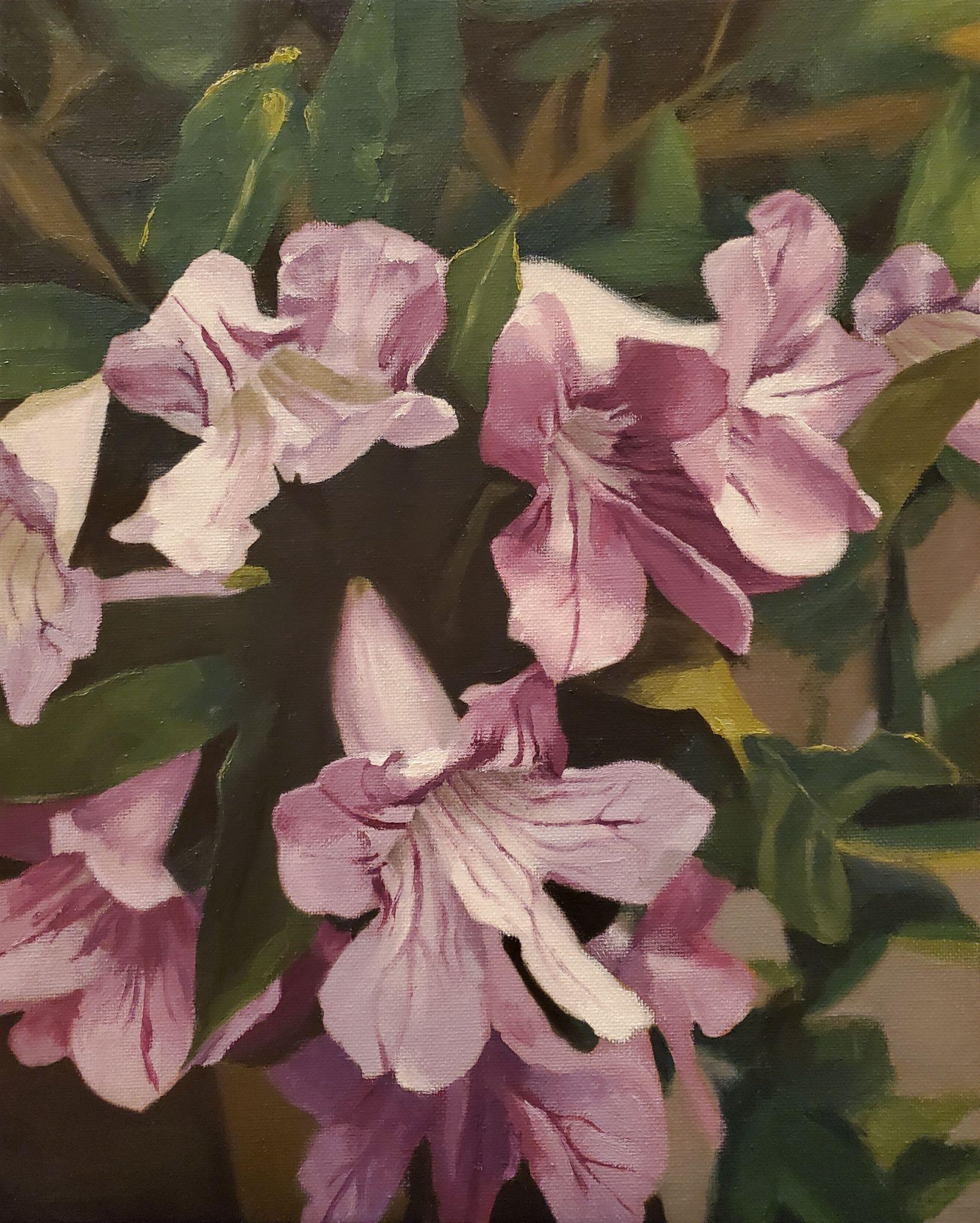






notwhenyoutastethearomasofahomeyou’veneverbeenapartofonyourtongue, elicitingsometypeofhomesicknessunregisteredinthejournalsofrenowneddoctors, andyouquestionyourself,wonderingifyou’reweavingliesfromexaggeratedmovements, howonmostofthedays,youfeeltheborderrestrainingyourthrashingsoulinplaceshrinking, agreathorizontalkindofshrinkalongthey-axisuntilyouhavelostyoureyestothesockets ofsomeoneelse’svisionandretreatedfar,farintothedepthsofasafezonetellingyouthat
thisisjustyourbrain’swayofsaying you need to leave this place; take all your repertoires and unwritten stories that could have been if you took the chance, that waning possibility, and flee from a suffocating loop that persuades you with a syrup-stained voice to elude from what gifts you freedom becausethedreamof beingabletowatchthosestreakingcarlightsbecomewhispersofwistfulthoughts, torunthroughthenightstreetsbarefootedasthecricketssingtoyou, toimagine,believein,aworldthatexpandsfartherthanyourlimited, one-dimensionalperspectiveofthesamehallsandelevatorsandpeople, issomethingthatopensthechamberstoyourheartsogreatly itfloodswithadelectablesaccharineinfatuation
andiswearihadmoretosayaboutthis;ireciteditinmymind, bindingspoolsofthreadtogethertocreateasatinfabric,but astimeranawaywithbothshoesinherhand,laughinggleefullyinelusion, i’veforgottentheraw,teeth-sinkingsensationifeltwhenisteppedoutintothe eveningbreeze,headtousledbyadawningrevelationcreepingatthecorners; i’vereallylostitnow—everythingthati’vebeenholding,actually;ican’t seemtorecallthehollowfeelinginstilledliketeethfillingwithinmy bitterhandsasilaidmygazeuponthebabyblueandpalecreamorange takingresidenceinthehorizon,slumberingsoferventlyasduskarose
butwhatidorememberisthatthehollownesscarvingmyinsidesout likethefleshofmangofromitsskin,isthefamiliarwarmthofemptiness. thetypeoflonelinessthaturgesyoutohangofftheearthwithhalfyourbody intheimpendingdarknessandtheotherhalfstuckinthestarkreminderofreality; you’reawareofthis—thetypeofthingthatsquirmsungratefullyinyourgut, sowingtheseedsofdoubtrepeatingfromthealcodainaharrowingmelody hauntingthetreacherouscoreofanasphyxiatedmind.



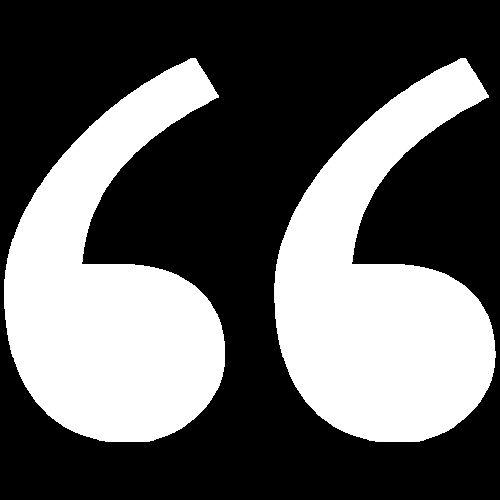
Iwakeup steepedintwilight, purpleinksplashedoverme. Caughtbetweentheheatandthechill: autumnrunshotattheendoftheday, animpendingjourneythroughthenight. Itrytodelay: strainsofsunlightcaughtinmybutterflynet. Indigofingertips,andyet thecolor’salreadyslippingawayinthelight. Fromsomewhereunearthly, avoicewhisper-shoutsinmyear, You can’t bring the sun to the stars.


It was evening,
but the moon was already out. It was especially bright that day and its reflection could be seen clearly on the lake below it. Shimmering, the image was occasionally broken by rare taps and ripples, originating from darting fish. By the lake, there was a man and a woman sitting on a bench, and they were talking softly—so softly they could barely be heard,evenbyeachother.
“It’scold,”themansaid.“Wasitvery hardtogethere?”
“No, it was fine. I think I tookthebus,andthenIswitchedbus stations, and then I got on another bus.AndthenIwalked.”
“Youwalked?”
“OfcourseIwalked.”
“You’re talkative today,” the mansaid.
“I’mnervous.”
“You don’t have to be nervous.”
“Okay,”thewomansaid.
“I’m serious,” the man said. “Youdon’thavetobenervous.”
“Okay.”
“Areyounervous?”
“No.”
“You don’t have to lie. I understand. Are you nervous?”“You won’tmakeanythingofit?”
“No, I wouldn’t. I’m just asking.Areyounervous?”
“You really won’t make fun ofme?”
“No.”
“I’m a little nervous,” the womansaid.
“See?” the man said. “That’s your problem. You’re too nervous abouteverything.Whatistheretobe nervous about? You think my parents will kill you? They’ll love you. They think you’re great already. You—”
“I wish you wouldn’t do that.” Her voice rose, and she soundedalmostlikeshewouldcry. Afteramoment,themanput hisarmaroundher.“Dowhat?”
“Yousaidyouwouldn’tmake funofme.”
“I’mnotmakingfunofyou.”
“You said—you are making fun of me. You’re making fun of me rightnow.”
“I’m just trying to make you feelbetter.”
“You’renot.”
“Okay,”themansaid.“Okay. If you don’t like it, I won’t say anything. I won’t say anything at all. I’llletyoublowupwithinyourself—” but now, the woman tapped his leg urgently, and she looked at him, scared.

“What is it?” He was whispering, even quieter. She kept looking at him, and a couple walked by, a man in a heavy trench coat and a middle-aged lady who was wearing her own brown coat. The woman’s eyes darted toward them for a moment, but once they passed, she lookedbackattheman.
“There were people,” she said.“Therewerepeoplecomingby.”
Themansmiled.“That’sit?”
She shot him a dirty look. “Yes,that’sit.So?”
"Nothing,” he said. “Nothing at all.” And then they said nothing else for the longest time, just staring at the lake. It was getting dark now, and evening was almost over, almost ready to give way to night. The woman rested her head against the man’s shoulder, and she whispered to him, “Do you think we’ve grown up?”
“Whatdoyoumean?”
“We’readults,now.”
“You feel like an adult?” the mansaid.
“No, I don’t feel like an adult.But,we’rebothadults.”
“If you don’t feel like an adult, you’re not an adult,” the man said.
“That’s not the way the worldworks,”thewomansaid.
“If you want it, it can be that way. You make things too complicated, you know. If you don’t want to be an adult, you don’t have to be an adult. Right? It doesn’t matter at all. Are you listening to me?” He said her name. “Are you listening to me? What I’m saying is important,youknow.”

“Okay,”shesaid. “Okay?”
“Okay,” she said. “If that’s how you say the world works, then theworldworkslikethat.”
“Yes,” the man said. “That’s how the world works, and we’re not adultsyet.Everythingisfine.”
She smiled at him. “Thank you.”
“Youdon’thavetothankme. That’sjusthowtheworldworks.”
Shepressedherheadagainst his shoulder, and she said thank you again. Then, after a moment, she said, “Do you remember the first time we came to this lake? Together?”
“You know,” he said. “We don’t have to go see my parents. We don’thavetoifyoudon’twantto.It’s notimportantatall.”
“Idowantto.”
“I know you don’t. But that’s fine. We can always meet them later. There’s no rush, you know. We can meetthemlater.”
“I want to! I want to meet them!”
The man turned toward the woman,andhesaid,“Then,let’sgo.”
Andhegotup.Butthewomanstayed sitting down, and she was staring at him, on the bench, her eyes very dark.Hesatbackdownagain.“See?” hesaid.“Youdon’twanttogo.”
“I do… I’d love to meet your parents…”
“Butyouwon’tgo.”
Hegotclosertoher.Shewas stilllookingupathim.“I’llgo,”she said. “Just give me a moment, and then we’ll go. Once I feel brave enough,thenwecango.”
He let out a breath, a long one,andhesaidokay,andheputhis arm around her. After around five minutes, he asked her if she would like to go now. After around a quarter of an hour, he asked her if she would like to go again. After around a half hour, he asked her again. This time the woman said to him, her voice poisonous, “Not after listening to you talk,” and he became quiet,andhewatchedthelaketoo. The water was very dark. It looked morelikeoilthanwaternow,evenas thewindblewacrossitanditrippled just like water would. There was no more sun. The moon, in the absence of it, made a stronger image on the oil-water.
The woman asked the man, “Is it night already?” She sounded scared. It was the first time she had talkedinanhour.
“Yes, I suppose it must be night.”
“Arewelate?”
“Yes,Isupposeso.”
“Do you think we can still makeit?Toyourparents’house?”
“Who knows? Who knows if we can. Maybe if we hurry. Maybe if we rush. Maybe if we go as fast as we—”
“I want to show you something,” she said, and she ruffled in her bag for a while, and then she took out a small cloth bag, gingerly, and inside there was something hard and she took that out, too. She covered it with her hands. “You said youhadalittlesister,didn’tyou?”
“Maybe.”
“Quit it. You said you did, didn’tyou?”
Henodded.
“What do you mean?”
“We’re adults, now.”
“Look at this,” she said, and she uncovered her hands. There was a little dreidel inside, a small top with four faces. On each face, there wasaforeignletter.
“Whatisthis?”heasked.
“It’s a dreidel.” She was smiling, and looking up at him, and he took the dreidel in his hands, and shelookedathishandsashedidso.
“No,that’snotwhatImeant. Is… what is this? Did you make it yourself?”
It was very rough and it looked slightly off. It did not seem symmetrical.
“Yes. I made it myself. Kind of.Ihadmydadhelpme.”
“What’dyoumakeitfor?”
Still smiling, she said, “Your sister. You said she was six. So I thoughtIwouldmakeheradreidel.I hadoneoftheseasakid.Iremember playingwiththem.Theywerenice.”
Themanturneditoverinhis hand.“Itisnice.”
“It is, isn’t it? Look at it. I evenpaintedit.Lookattheletters.”
“What language are they from?”
“I don’t know,” she said. “But I painted them. Don’t they look nice? You like them, don’t you? Do youthinkyoursisterwilllikethem?”
“I think my sister will like them.”
“You do, don’t you? I know she would. Children love these sorts ofthings.”
“Theydo.”
She took the dreidel back, and she turned it over, and she kept turning it over, but as she did, gradually her smile disappeared. “Do you think your parents will like it?” shesaid.
“I’msuretheywon’thateit.”
“Butwilltheylikeit?”
“Why do you care if they like it? It’s for my sister, isn’t it? And she’llloveit.”
“Your sister will love it,” she said. “But your parents won’t.” She looked down at the dreidel, the little toy, and she looked back at the lake. The lake was even darker now, almost black. “It’s night,” she said. “It’s already become night.” She turned the dreidel over in her hand. “Who visits somebody’s parents at night? They’re going to think I’m… I’m weird. Your parents won’t like me. Andyoursisterwon’teither.Because yourparentswon’tlikeme.”

The man sounded completely exhausted. “When did I eversaythat?”
“I can tell. Based off commonsense.”
“No,” the man said. “Maybe based off your common sense. But I know my parents. They’re fine. They’re fine with it all. They won’t care. Come on. Let’s just go. They won’t mind now, but they will mind ifitgetsevenlater.Idon’tevenknow if my sister is still awake, actually. Maybesheis.”
“Yes,” the woman said. “Probably, she is. It must be very late.”
“It’s not that late,” the man said. “It’s not late at all. She’s been going to bed later and later these days, and I told my parents about you,andIsaiditwouldbeniceifshe could meet you. She’s been getting excited, actually. Yesterday, she couldn’t stop asking me about you, and–Hey!Whatareyoudoing?”
She had gotten up, and she hadthrownherarmbackinamotion to throw the dreidel in her hand. He got half up and sat her down. “What are you doing?” he said. “I thought youspentalotoftimeonit.”
“Idid,”shesaid.“Ihadspent a lot of time on it. I carved it out of wood myself. I used my very own knife, and I cut myself a few times, and it hurt, but I kept cutting and cutting and cutting until eventually–” She got up once again, in a single swift motion, so fast the man could not react, and now she threw the dreidel as hard as she could.Ittravele
only a moderate distance, reaching the lake and then a little more, and there, in the oil-water, it sank for a briefmomentbeforeitresurfaced.
Keefe, Ian. 2017
“Now, don’t you feel stupid?”
“There,” he said, watching the dreidel float.
 by aden zhao
by aden zhao
gazesoveralivelytown,slowly sinkingintotheglowinghorizon. Dyingraysofsunlightdyetheskyan ephemeralfusionofblueandorange streakedwithhazywhiteclouds.A festivemoodpermeatesthevibrant town;Halloweenhasarrived.The townspeopleassembletheirarsenal ofcandy,readytofendoffstarving hordesoflaughingmonsters.Ina distantcorneroftheburningsky,a translucentfullmooncastsitseyes overthetown,watchingandwaiting silently.Thedayhaspassed,but nightisyettocome. Suddenly,theworld fracturesintomillionsofgleaming shardsoflightfloatinginablack abyss.Eachteardropofglintingglass reflectsaseaofbrilliantcolorsand vividimagesfromallacrossthe world.Theetherealshardsoflife swirlaroundfasterandfaster, formingaragingtyphoonoflight fragments.Piecebypiece,the countlessshardsassemble themselvesintoamesmerizingoval mirror.Themirror’sdarksurface ripplesrestlesslywithcloudsof energyasblurredreflectionsfadein andoutofreality.Anillusoryportal toanotherdimension;aclouded cataractgazingintotheunknown. Piercingthroughthecloudsisthe unblinkingmoon,illuminatingthe mysteriousmirrorfromwithin.
An illusory portal to another dimension; a clouded cataract gazing into the unknown.
Like a jack-o’-lantern set ablaze, the dying moon flares to life.
Themoonflickers ominously.Aragingsurgeof moonlightescapesitsglassprison, drowningthesurroundingabyss withitspaleglow.Theworldblinks intoexistenceonceagain.
Abrightfullmoonwatches overabustlingtown,slowlyrisingas thenightgrowsdeeper.Grotesque massesoffleshseatthemselvesona giantconveyorbeltsplatteredwith bloodanddirtandfilth.Glistening streamsofsalivastainthecornersof theirmouths.Thesecreaturesare unaccustomedtowaiting.The conveyorbelthumssoftlyasits guestsgrumbleandgroan.Creases andflapsintheirfleshundulateas theynodtoeachother,buttheir restlesseyesburiedinmountainsof skinbetraytheiranticipation.Every laboriousbreaththickensthehazy fogthatcloudsthevenueasthey wait.


Swelteringheatradiates fromthekitchenbuildingasblurred silhouettesfranticallyrushbackand forth.Strangely,thekitchenis deathlyquietdespitetherush.A cursoryglancearoundthebuilding wouldrevealthatthesecretive factoryhasnoentrances.Nomatter though.Theguestsoutsideonlyhave eyesfortheominousconveyorbelt runningthroughadimopeningin theeasternkitchenwall.Tendrilsof smokecreepoutofthechimneys, infusingapeculiarstenchintothe heavyfogthatsurroundstheguests. Thedroolingintensifies.Onebyone, purplishredmoundsmaterialize throughthedarkopening,throbbing andpulsatingonthehumming conveyorbelt.Thecreatures’eyes lightup;theyleanclosertothe oozingpilesofmeat,pressingand contortingagainsttheedgeofthe conveyorbeltwiththeirunnaturally bloatedbodies.Theirgroansof hungergrowlouder,drowningout thebuzzoftheconveyorbelt.Itis almosttime.
Abruptly,thecreatures freezeandswiveltheirswollenheads totheskyinperfectsynchrony.The twistedamalgamationsofskincrowd againsteachotherinexcitement, staringasthegleamingwhitemoon graduallyfadesintothenight.An
inkyvoidcreepsacrossthepalecircle, consumingthecrateredbodyuntil thereisonlyaslimcorneroflightleft. Suddenly,asifinretaliationtothe void,themoonflickersviolentlyback intoexistence.Backandforth,the moonandnighttradeplaces.Once, twice,threetimes.Themoonprevails. Likeajack-o’-lanternsetablaze,the dyingmoonflarestolife.Ableeding orange-redglowpermeatesthelantern inthesky.Theseaoffleshbelow ripplesanderuptsintoawarpedand deliriouscry.Atidalwaveoffleshand fatandsalivaattacksthehumming conveyorbelt.Thebloodmoon watchesascrimsonredslowlyinfects thethickfogthatenvelopesthetown. Thefeasthasbegun.Hallow’sEvehas arrived.
by anonymous

CW: This story contains heavy elements of self harm.
The day ends slowly in this sleepy old town. A warm humid broth hovers over the neighborhood park long after the sun has set. The insidesofhousessteamevenwarmer than the park, so the townspeople scatter to the neighborhood park, finding people to talk to, catching fireflies, and searching for constellations in the night sky. Near the park, faint basslines and drumbeats emanate from a lively houseparty.
Lucas sits alone on the end ofaparkbench.Thebenchsitsalone onahard-to-seetrailthathidesitself behind layers of green shrubbery. Lucas’s feet dangle over a small brook that burbles with boredom. A worn-down hardcover novel sits in his hands, but Lucas can’t bring himselftoopenit.
“Serena,”
hesays.Thenamelingersonhislips, hardwired into his mind and his tongue after years of repetition. The feeling he used to associate with that word was gone now. The synapses in his brain still made the basic connections, but one of those connections had broken somehow, and no one had bothered totryandrepairit.
Lucas considers this obscure spot his refuge and his escape from society. Here, he can stare down the pit of numb loneliness inside his heart without distraction or interruption. He brings his feet up onto the bench and wraps his arms around his knees. It makes him feel warmer, even though a thin film of sweatfromthelingeringheatalready coatshisskin.

“Serena,” he repeats to himself. His thoughts scatter into clumps of consciousness, fears and fantasies, and coalesce again. Already, her voice and her face fade into his memory as if they never wantedtobethereanyway.
A cramped feeling of unease impels Lucas to let his feet down from the bench. His hand accidentally loosens, and he drops the novel in his hand. It falls to the ground, white pages stained brown by the mud by the creek. A knife slides out of the book and comes to a stopblade-firstinthewater.
He has thought about it before—about the fear of death, the fearofceasingtothinkorremember, thefearofceasingto be.
He can’t feel that right now. Serena had never cared about him, right? Everyone else had stopped caring about him a long time ago, right? After all, he had stopped caring about them. He had stopped caring about his schoolwork, teachers, friends, family, sleep, food—all those basic needs. He’s nothingnow.Heleteveryonedown.
Lucas leans down from his benchandpicksuptheknife.Evenin thedimevening,lightfrombuildings and streetlights filters through the surroundingtreesandreflectsoffthe knife blade. A dim moan escapes fromLucas’sthroat.Hesetstheknife back down on the ground and shivers.
notification. It’s not Serena. It’s Carol.
Lucas’ eyebrows furrow as the thought of Carol rises to the top ofhismindlikeabubbleofgastothe top of a pond. Carol knows him better than he knows himself. He mightaswellpickup.
Then, he pauses. He doesn’t want Carol to be hurt. He doesn’t wantCaroltotryandstophim.Carol would care if he left this world. Unliketheothers.
With his heart squeezed in an awkward crevice, Lucas taps open thenotificationonhisphone.
“hey how r u doing,” the text read.“wannachat?”
Lucas isn’t sure how to respond. A small icon appears at the bottom, indicating to Carol that he hasreadthemessage.
It—it’s fine. He puts the phone on sleep mode and sets it down on the bench. He’s not sure how to talk to Carol right now. Lucas trusts her more than anyone, but that still wasn’t enough somehow. Hecouldn’topenup.Hewouldn’t. Shedoesn’tneedtoknow.
Lucas’ eyes return to the knife, and he picks it back up. The initial fear is still there, but the distraction has allayed the intensity of the fear. He runs his fingers down the knife blade. It feels smooth and serene. A far-off light somewhere glances off the blade and into Lucas’ eyes.

of the knife’s texture on his skin. The tender flesh gradually reddensunderthebackandforth. Back and forth. The mesmerism ofself-harm.
Suddenly, his phone pulses. And again. Long, drawn out breaths of vibration and silence. A phone call. The screen flashesawake.It’sCarol.
Lucas moves his hand to decline the call, but his cold and unwieldy hand slips, touching the green pick-up button instead of theredone.
“Hello?” a voice calls faintly from the phone speakers, tinny from the phone line’s distortion.
“Hey,”Lucassays. Words spill out of the phone’s tiny speaker, too indistinct for Lucas to make out. He presses the speakerphone button.
“—knew something was upwhenyoudidn’trespondtomy texts after you stepped out of the party, and then I went outside to find you and you were gone. Whereareyou?”
A weary look crosses Lucas’ face as he slowly processes Carol’s words. The party…seems so distant. Half a minute of silencepassesby.
“I went home early,” he lies.
Those words bounce around his mind like echoes in a cave. Coming upwiththisplanistheeasypart,but the visceral sensation of having a knifeexposed…it’soverwhelming.
Two brief jolts from Lucas’s phone interrupt his frantic reverie. He instinctively reaches for his jeans pocket but stops, wondering if the distractionisworthit.
What if it’s Serena? Hetakeshisphoneout.
The bright light of the phone screen sears a glowing afterimage into Lucas’ eyes, forcing him to look away for a few seconds. When his pupils adjust to the light, he reads the
He touches the flat of the blade against his forearm. The cool metal surface sends a chill into his body. A numb wave of emotion rises inside him before gradually subsiding.
As the feeling subsides, Lucas rotates the blade so that the sharp edge faces down, drawing it across his skin. The serrated edge rubs against his skin, leaving behind a white line of displaced skin cells. However, the dull blade fails to pierce through the skin to the flesh beneath.
Lucas’ hand shakes. He scrapestheserratedbladeagainsthis forearm, back and forth, back and forth, chipping off layers of soft skin-brown flesh. Back and forth, back and forth, a hypnotizing rhythm, dazzling in its agony. He scrapes gently at first, enjoying the tactilefeel
“No you didn’t, Lucas. You were getting a ride home fromme.Whereareyou?”
Lucas raised a wall in his mind, trying to resist telling Carol. After about two seconds, thewallcrumbled.
“I’matthepark.”
The sound of heels running on pavement projects from the phone speaker. “That’s two blocks away,” Carol pants breathlessly. “Lucas please don’t tell me you’re doing—was there something in that book you brought with you to the party? Thatyouwouldn’tletusread?”
“Don’t bother coming,” Lucas says. He glanced at the last hints of orange and purple on the horizon.“It’sdarkoutalready.”
I have a knife.
“Lucas, stop avoiding me. I knowwhatyou’redoing.You’vebeen hinting at it for the past year. It’s been Serena, day in, day out, you’ve been obsessed with her like crazy. I want to hate you for that, you know? I want to hate you so badly. You’ve been ignoring me, you’ve been ignoring the rest of your life. I hate you Lucas but oh my god I want youtobeokayagain.”
Carolpaused. “Inside the book…is it a knife?”
Lucas lets the silence answer forhim.
“Ohmigod it is a knife Lucas don’tdoanythingstupid please don’t doanythingstupid—“
Lucas fingers the knife handle and twirls it around in his hand.Withasuddenburstofenergy, he jerks the knife upwards and shovesitathisthigh.Hisjeansresist theblow,leavinghisskinbruisedbut unbroken. He goes for it again and again. Threads pull loose from the underlying fabric. Again, again. The bruises hurt like nothing he’d ever felt before, but he kept going. Again. A tear divides his jeans, revealing tender skin underneath. Again. He aims his knife for the skin. It doesn’t pierce—it bounces off—it cuts into the flesh and he screams and screams and the knife drops to the groundwithalowthudandthetears come as they never have before and he sobs and wails and he slips off of the bench and curls into a fetal position on the ground, sticks and rocks poking into his body, blood oozingoutofthecutandstainingthe browndirt.
“Lucas!” Carol screams, and Lucasdoesn’tjusthearitthroughthe phone—he hears Carol’s undistorted voice coming from across the park. “Lucas!” The voice is clearer now. “Lucas!”
Carol bursts into the clearing, knocking stray sticks and branches out of her way. “Lucas, you”—she sees the blood—“Lucas, whathaveyoudone?”
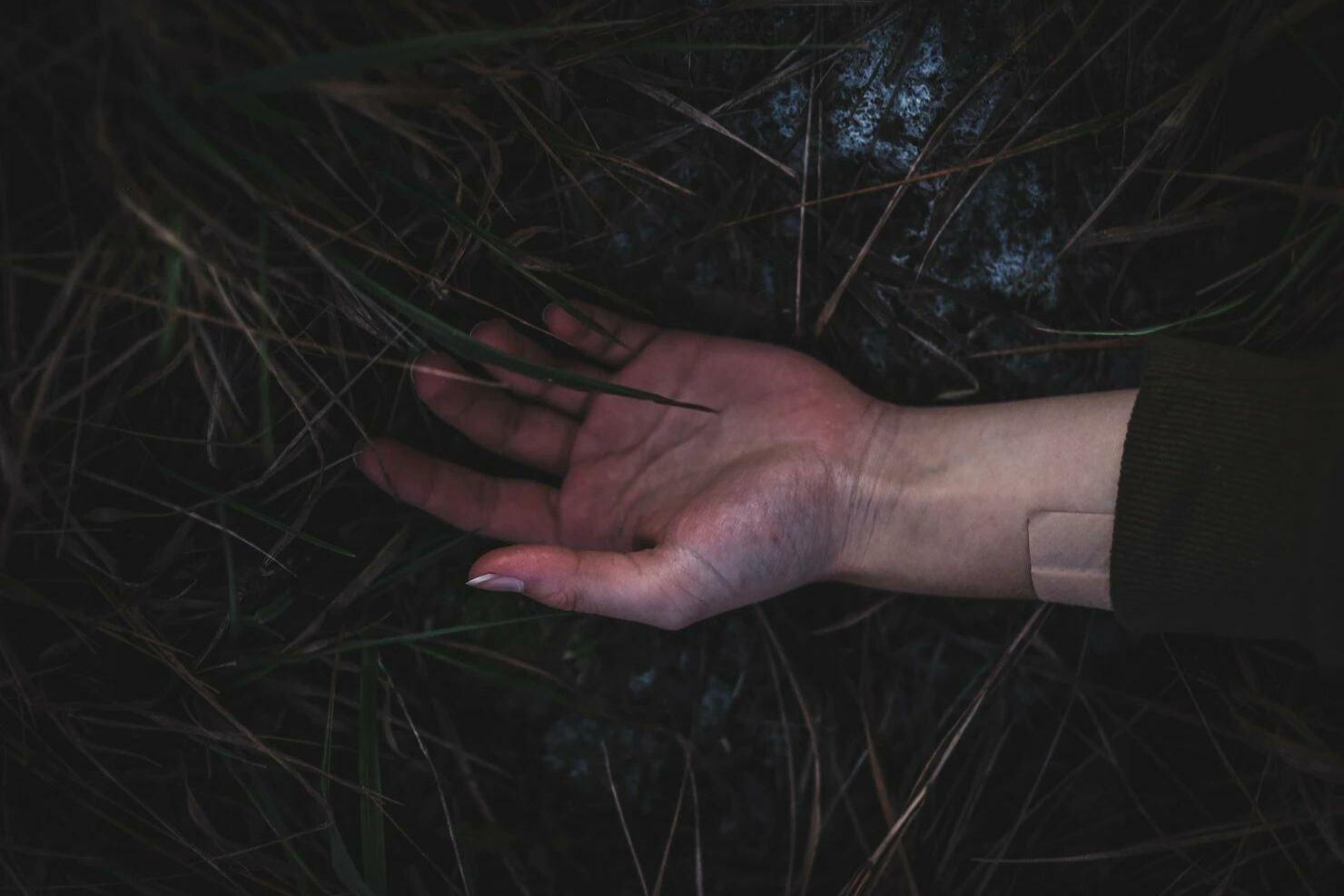
Lucas’s sobbing pauses suddenly,thenstartsagain.
Carol pulls out her phone and opens the dialer. She presses threenumbers.
While the phone rings, she putsahandonhisshoulder.
“It’s okay. Help is coming. Helpisonitsway.”
It’s not going to be okay, thinks Lucas. It’s not going to be okay. But he nods anyway. He nods and cries and nods and cries and clamps his teeth down on his clothes to prevent Serena’s name from escapinghislips.
“I’m sorry, Carol,” he says.
Carol bites her lip and nods as the apologies fade into the warm airofthepitch-blacknight.
“I’m sorry.”

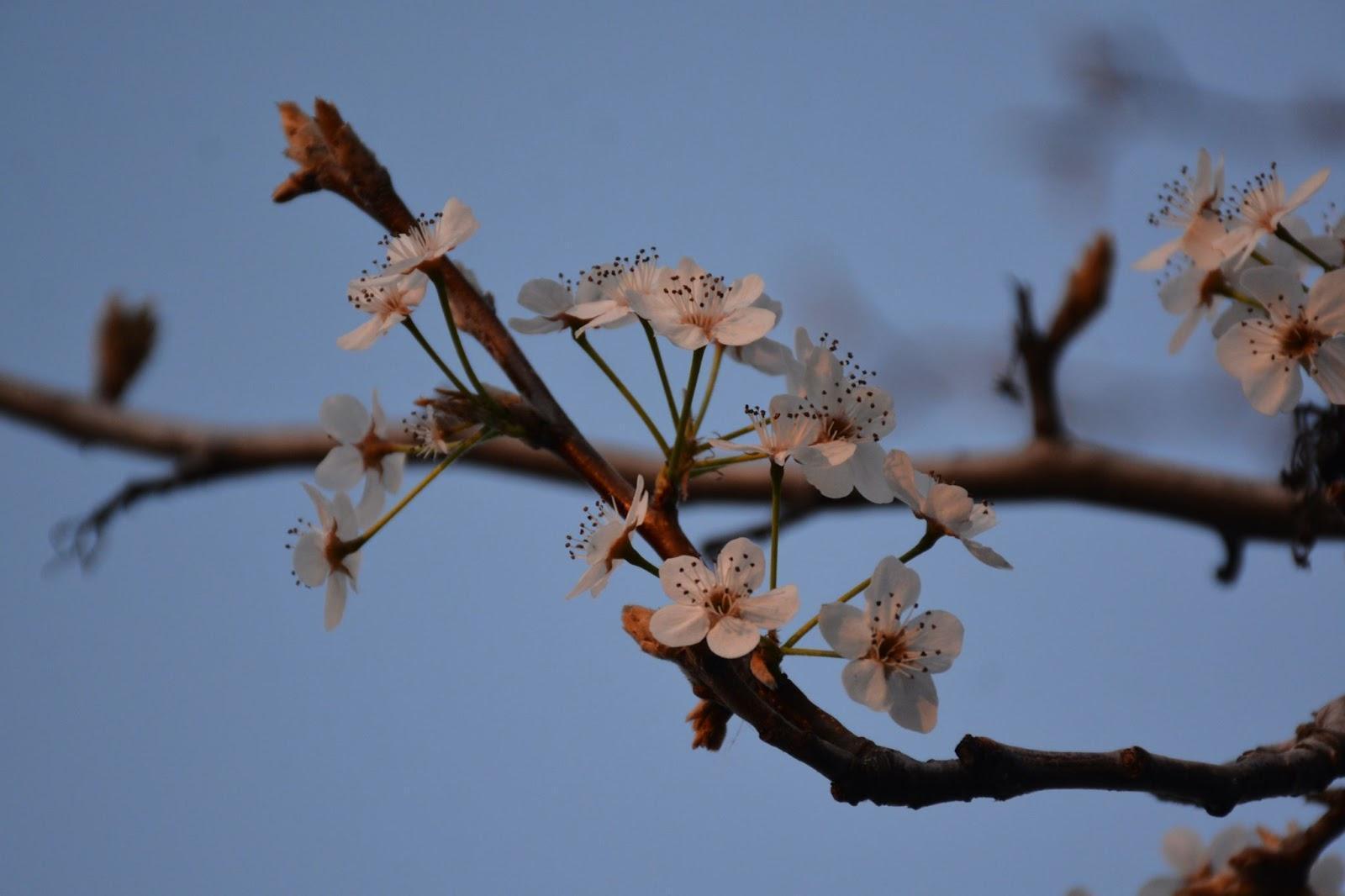



A hearty meal between friends and family, rich with aroma.
